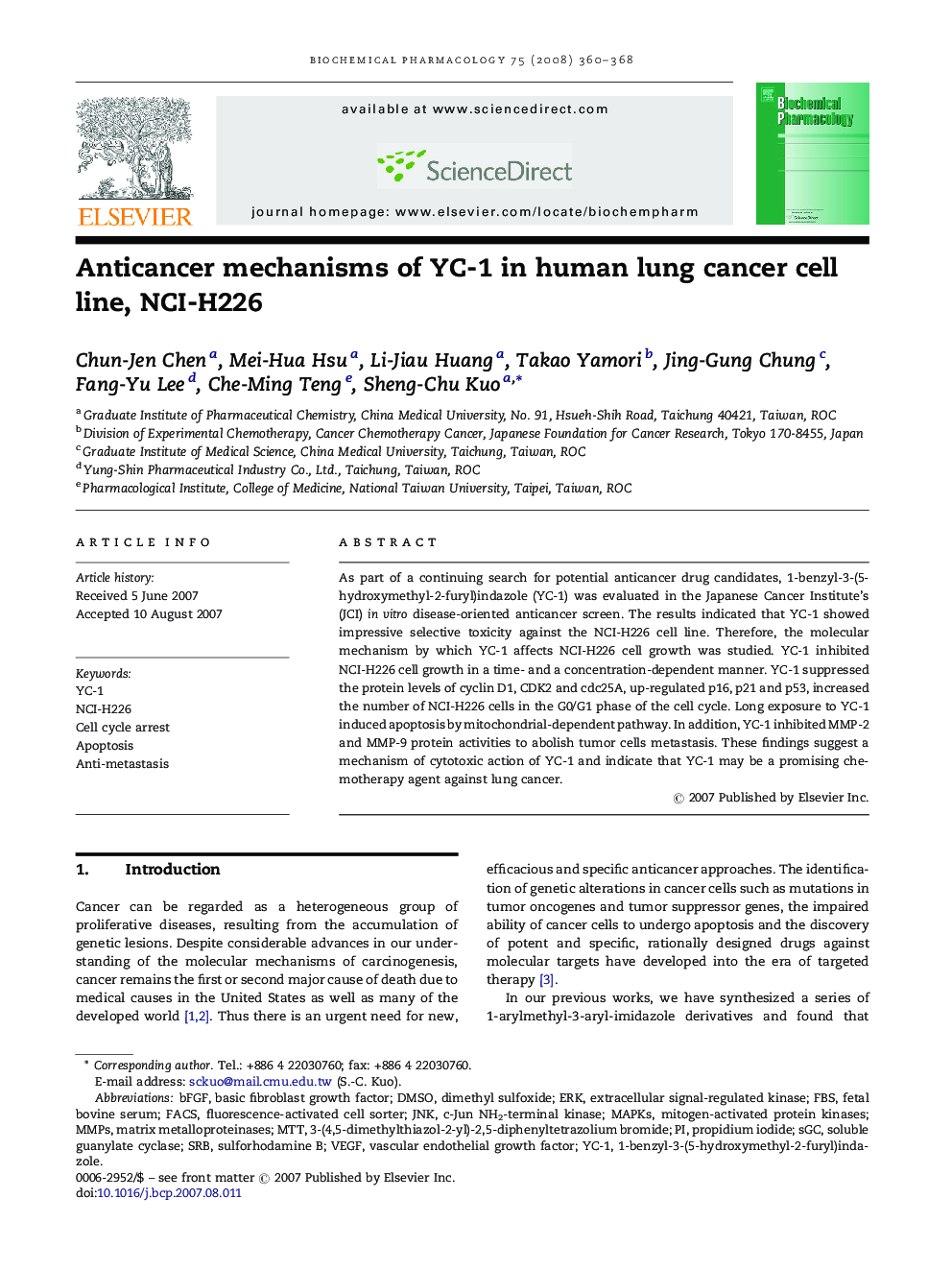| Article ID | Journal | Published Year | Pages | File Type |
|---|---|---|---|---|
| 2514634 | Biochemical Pharmacology | 2008 | 9 Pages |
As part of a continuing search for potential anticancer drug candidates, 1-benzyl-3-(5-hydroxymethyl-2-furyl)indazole (YC-1) was evaluated in the Japanese Cancer Institute's (JCI) in vitro disease-oriented anticancer screen. The results indicated that YC-1 showed impressive selective toxicity against the NCI-H226 cell line. Therefore, the molecular mechanism by which YC-1 affects NCI-H226 cell growth was studied. YC-1 inhibited NCI-H226 cell growth in a time- and a concentration-dependent manner. YC-1 suppressed the protein levels of cyclin D1, CDK2 and cdc25A, up-regulated p16, p21 and p53, increased the number of NCI-H226 cells in the G0/G1 phase of the cell cycle. Long exposure to YC-1 induced apoptosis by mitochondrial-dependent pathway. In addition, YC-1 inhibited MMP-2 and MMP-9 protein activities to abolish tumor cells metastasis. These findings suggest a mechanism of cytotoxic action of YC-1 and indicate that YC-1 may be a promising chemotherapy agent against lung cancer.
